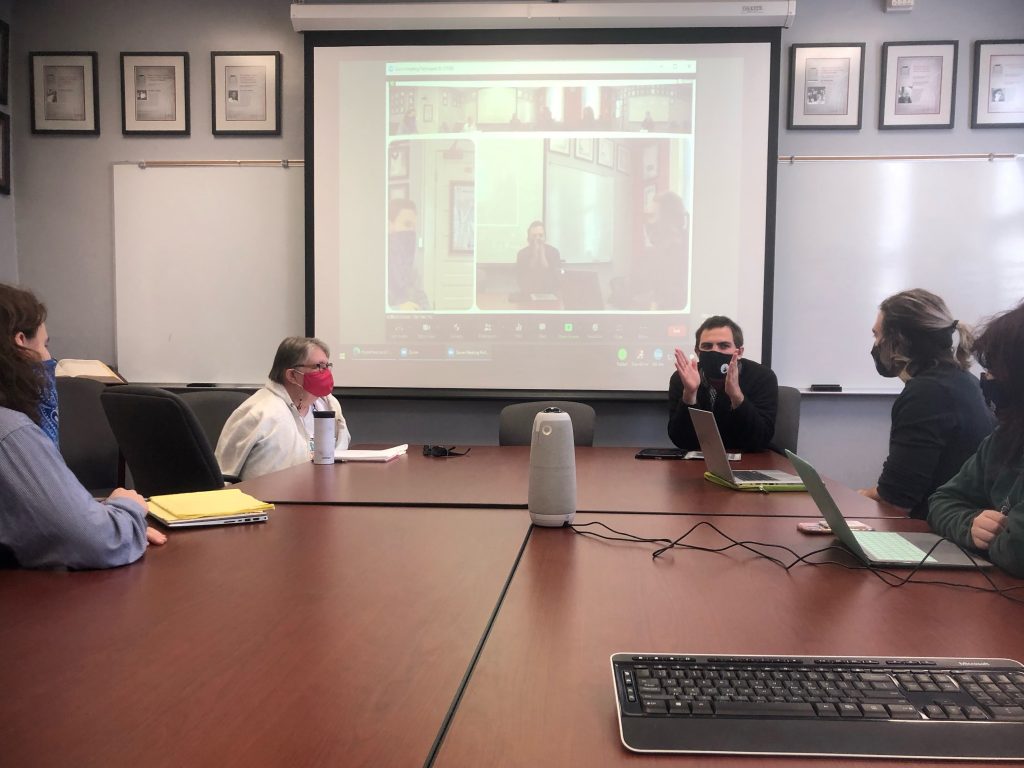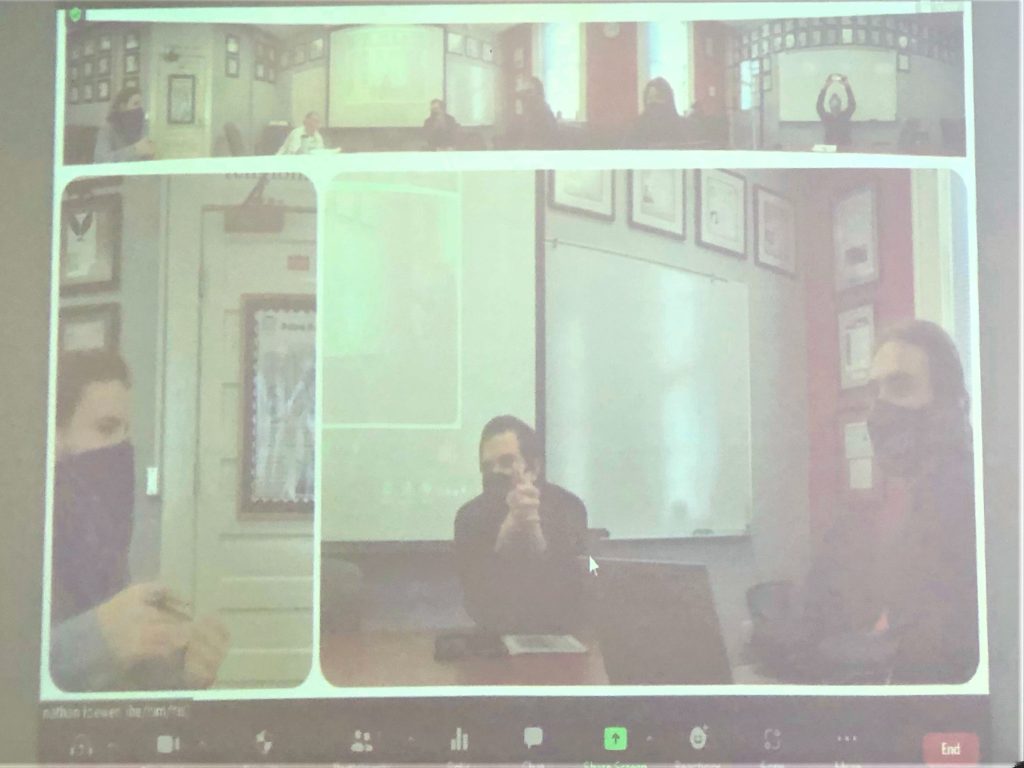What is this?
Have you tried using a basic computer web camera to capture conversations with a classroom? Prof. Loewen has experimented with dozens of ultimately unsatisfactory methods since 2009. With the arrival of the REL digital lab in 2021, things have changed.
Among the digital tools being collected by Prof. Jeri Wieringa is the OWL Pro, which is a 360-degree camera, mic, and speaker combined into one device. Joe Defrank, an REL graduate student in Loewen’s seminar REL522, brought the OWL to Loewen’s attention. The seminar course schedule involved seven virtual class visits from contributors to a forthcoming volume being edited by Prof Loewen.
Using the OWL camera was easy! After buying a USB extension cord, we placed it in the middle of the seminar table, plugged the OWL into the classroom computer, started our videoconferencing program, and made sure the computer was using the OWL camera and microphone. The unique feature of the device is that it does the following simultaneously:
- Shows a panoramic view of the entire room.
- Detects who is speaking in the room, and shows images of them.
- Delivers focused audio of whomever is speaking to the other person.
- Delivers high-quality audio of the other person to the entire room.


Why have virtual guests?
- Lisa Rosenlee, cross-cultural critiques of Anglo-American philosophy.
- Purushottama Bilimoria, on post-colonial critiques.
- Andrew Irvine, on decolonial critiques.
- Oludamini Ogunnaike, on Africana and Islamic philosophy of religion.
- Tim Knepper, on the global-critical philosophy of religion.
- Mikel Burley, on ethnographic approaches to philosophy of religion.
- Gereon Kopf, on the multi-entry approach to philosophy of religion.
The vast generosity and goodwill of these scholars to spend yet another hour online cannot be underestimated. The OWL camera certainly brings some relief to the exhaustion of videoconferencing, if not only because it enables people to converse with a room of people rather than squares on the screen.